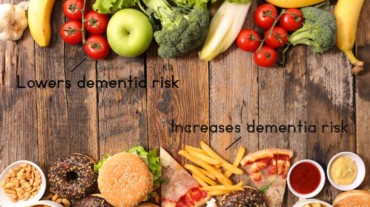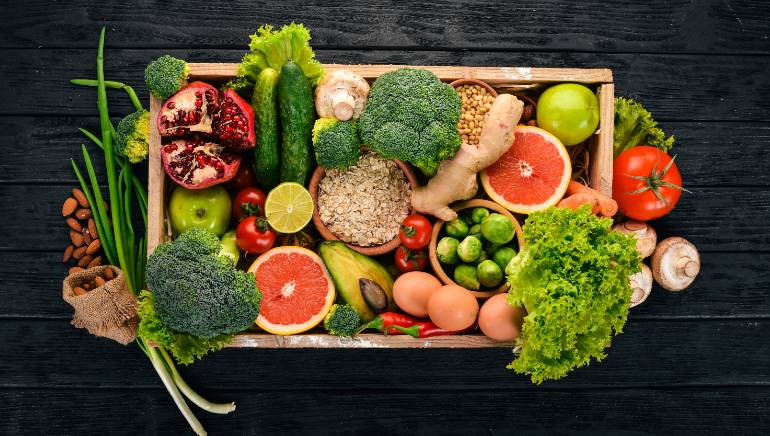
We’re all aware of the significance of a healthy diet on our health, and yet we often ignore it. The quality of foods we choose to eat might seem inconsequential right now but they show their impact later, especially when it comes to dementia.
It’s no secret that a healthy diet benefits the brain and now, researchers say that the certain foods may be associated with developing a risk of dementia.
The study looked at “food networks” and found that people whose diets consisted mostly of highly-processed meats, starchy foods like potatoes, and snacks like cookies and cakes, were more likely to have dementia years later than people who ate a wider variety of healthy foods.
“There is a complex inter-connectedness of foods in a person’s diet, and it is important to understand how these different connections, or food networks, may affect the brain because diet could be a promising way to prevent dementia,” said study author Cecilia Samieri from the University of Bordeaux in France.
A number of studies have shown that eating a healthier diet, for example, a diet rich in green leafy vegetables, berries, nuts, whole grains and fish, may lower a person’s risk of dementia. Many of those studies focused on the quantity and frequency of foods.

Also, Read: In a promising discovery, researchers find that certain antibiotics can treat early-onset dementia
The impact of specific foods on developing increased risk of dementia
“Our study went one step further to look at food networks and found important differences in the ways in which food items were co-consumed in people who went on to develop dementia and those who did not,” Samieri added.
The study, published in the journal Neurology, involved 209 people with an average age of 78 who had dementia and 418 people, matched for age, sex and educational level, who did not have dementia.
Participants had completed a food questionnaire five years previously describing what types of food they ate over the year, and how frequently, from less than once a month to more than four times a day.

Researchers used the data from the food questionnaire to compare what foods were often eaten together by the patients with and without dementia.
Select Topics of your interest and let us customize your feed.
PERSONALISE NOWThe study found while there were few differences in the amount of individual foods that people ate, overall food groups or networks differed substantially between people who had dementia and those who did not have dementia.
According to the researchers, people who developed dementia were more likely to combine highly processed meats such as sausages, cured meats and patés with starchy foods like potatoes, alcohol, and snacks like cookies and cakes.
This may suggest that frequency with which processed meat is combined with other unhealthy foods, rather than average quantity, may be important for dementia risk.

What foods can be our action plan for lowering the risk of dementia?
“We found that more diversity in diet, and greater inclusion of a variety of healthy foods, is related to less dementia, in fact, we found differences in food networks that could be seen years before people with dementia were diagnosed,” Samieri noted.
The ball is always in our court, ladies. Although it isn’t wrong to treat yourself with tasty delicacies but the constant choice of healthy foods shall serve you now and forever.